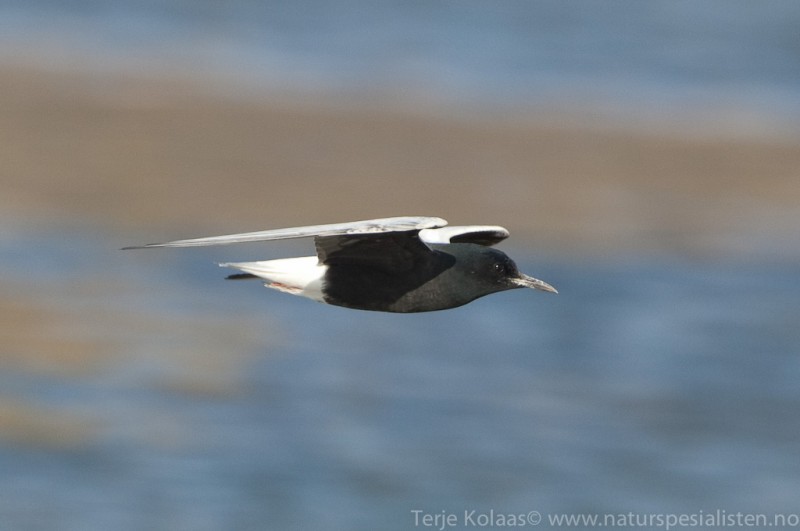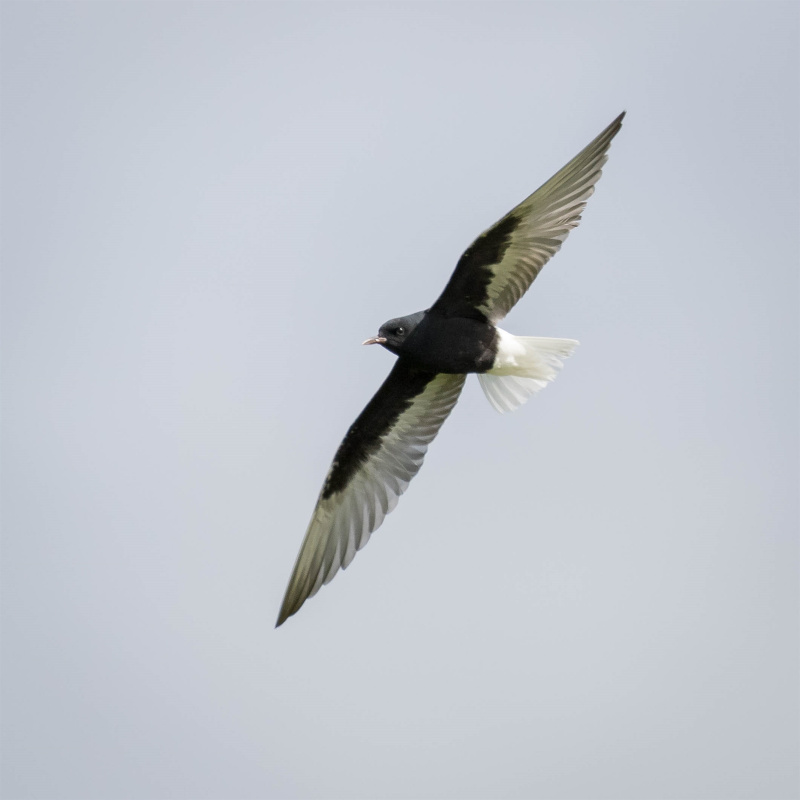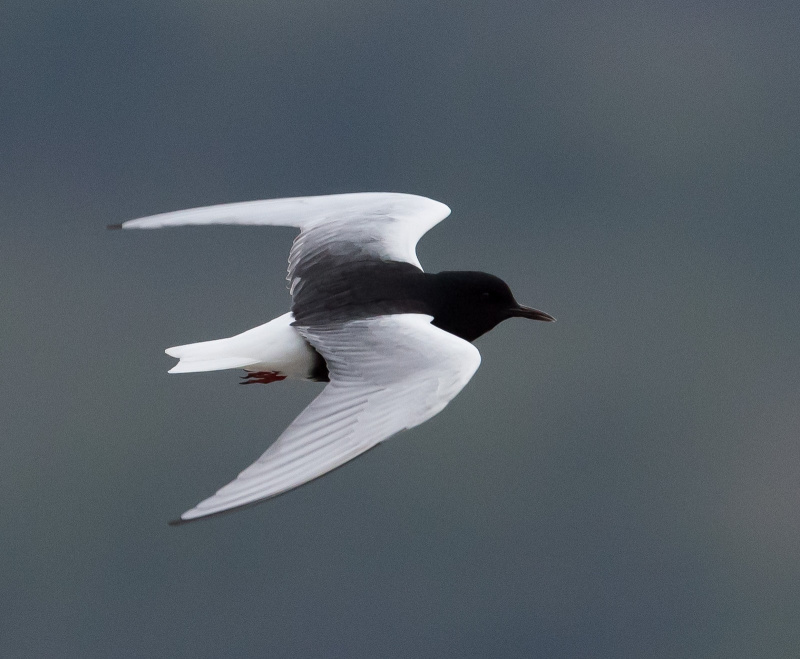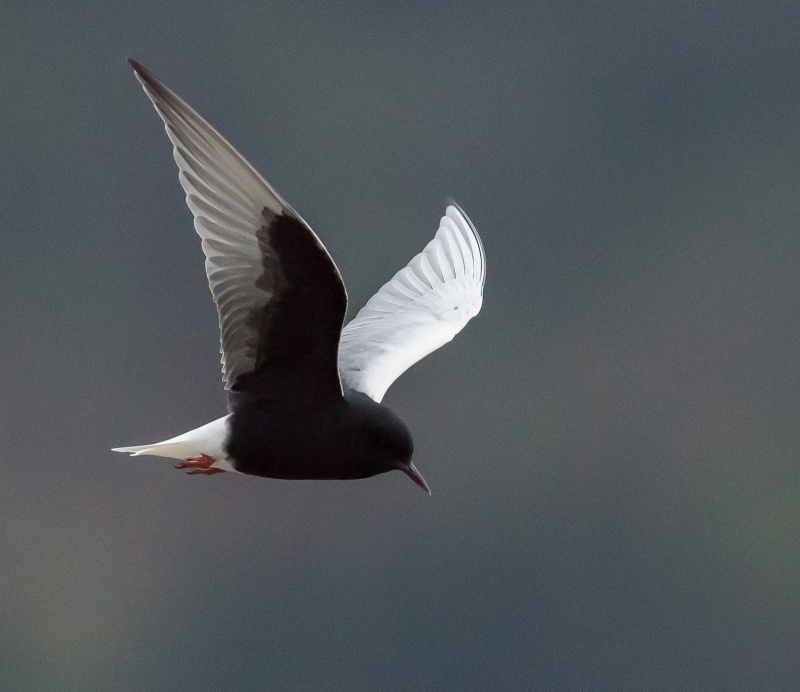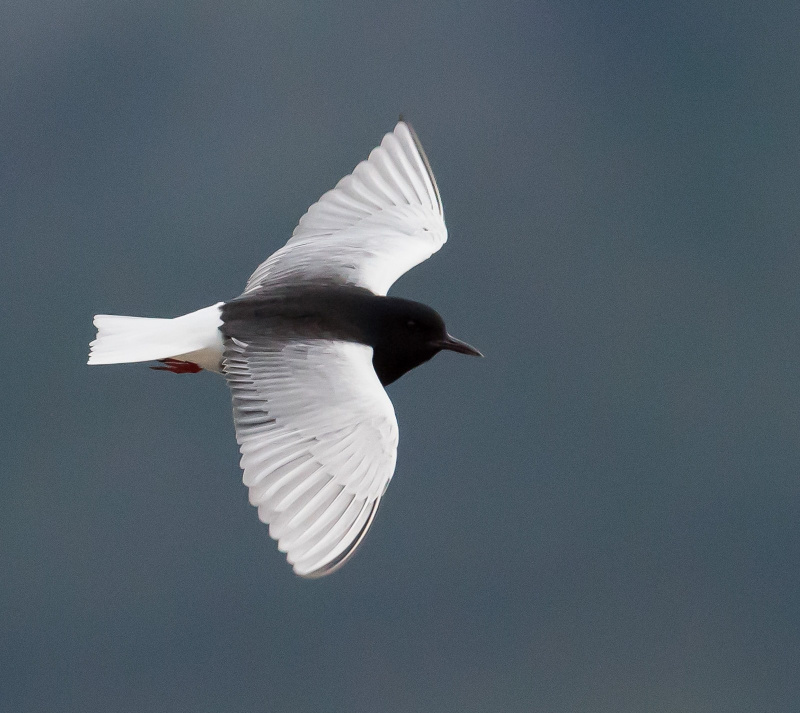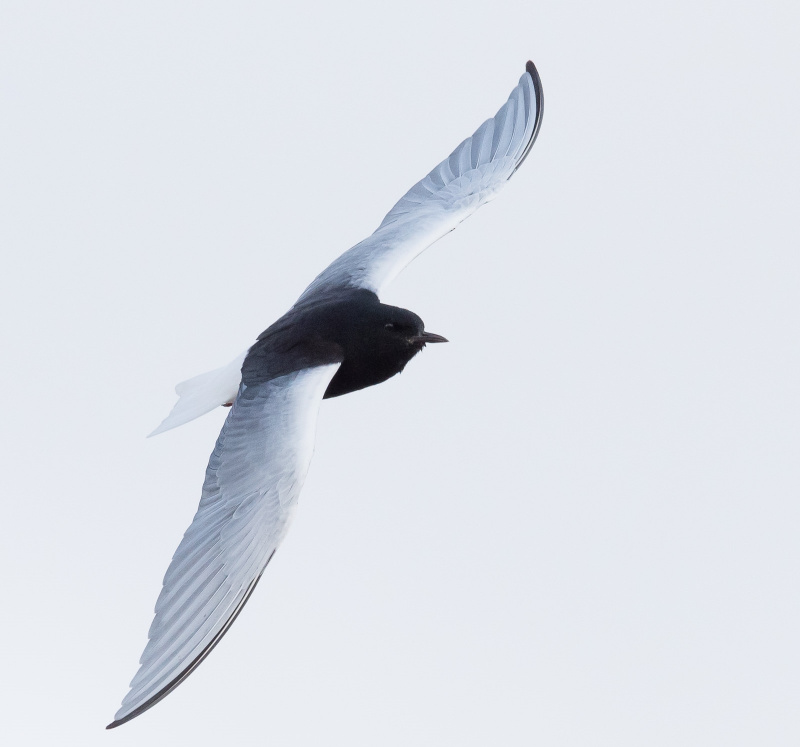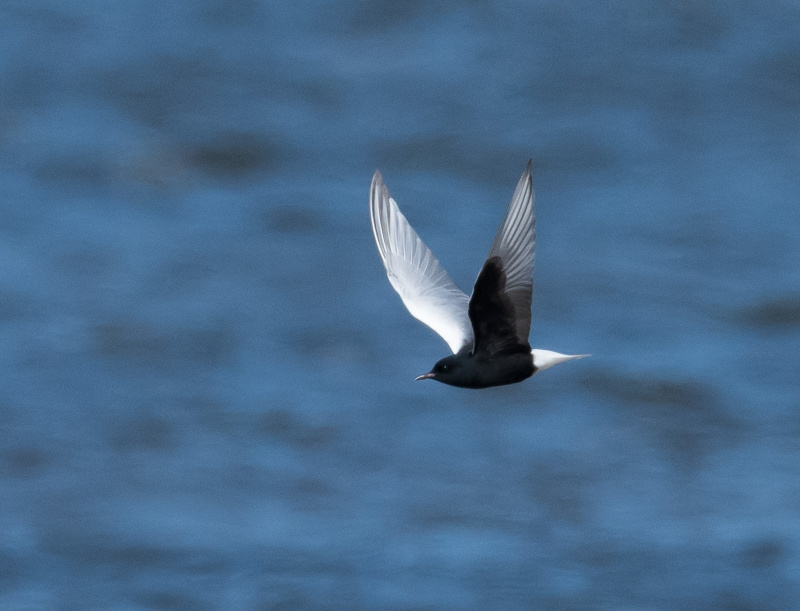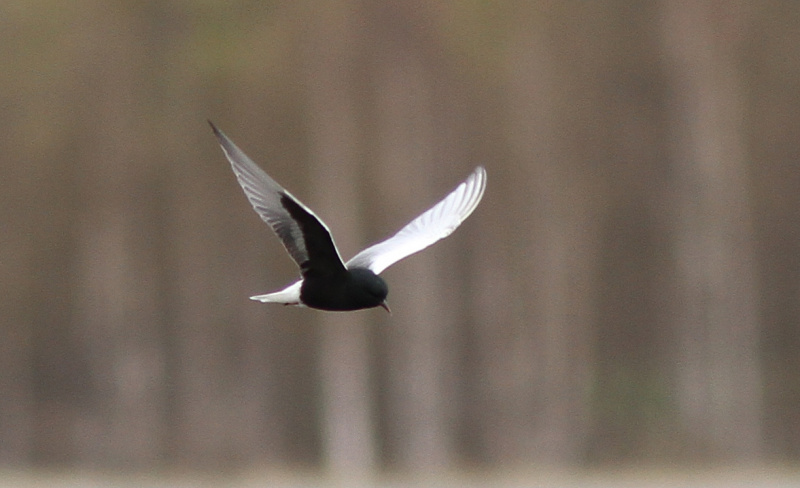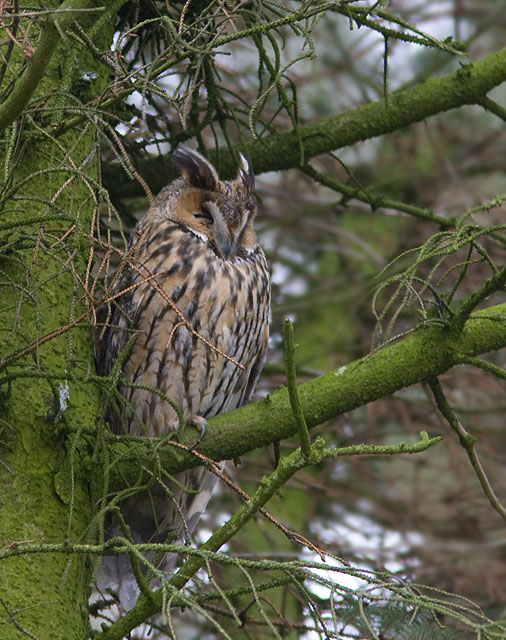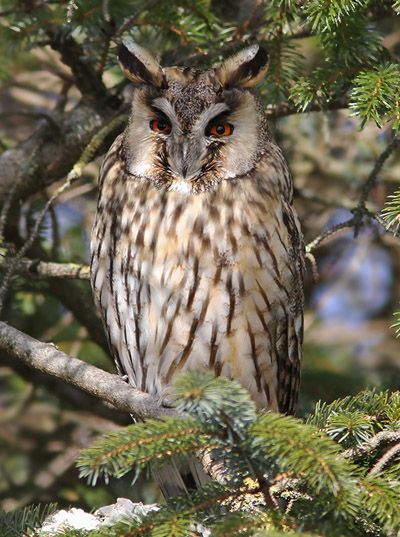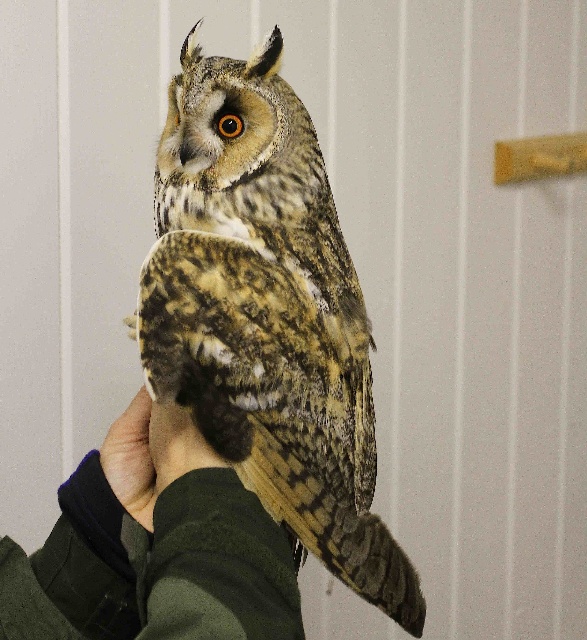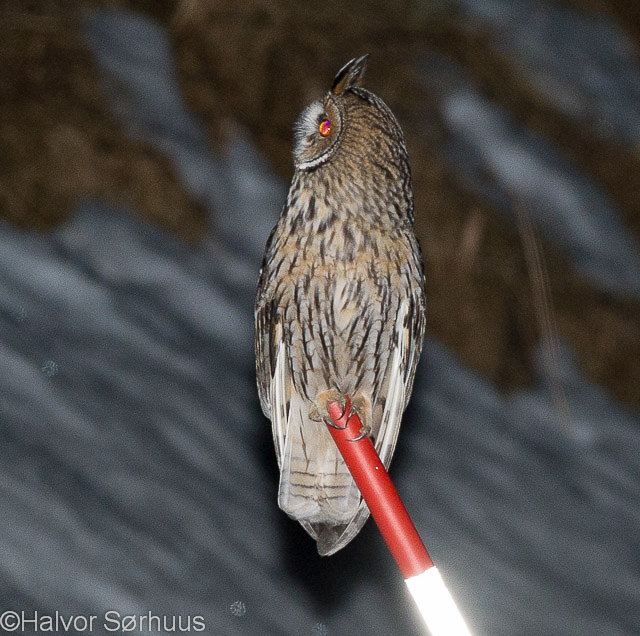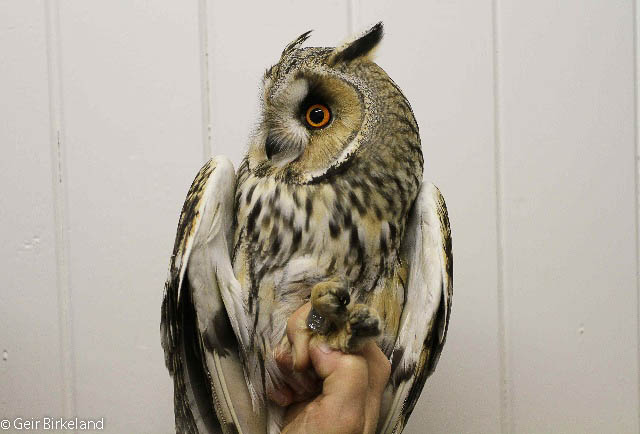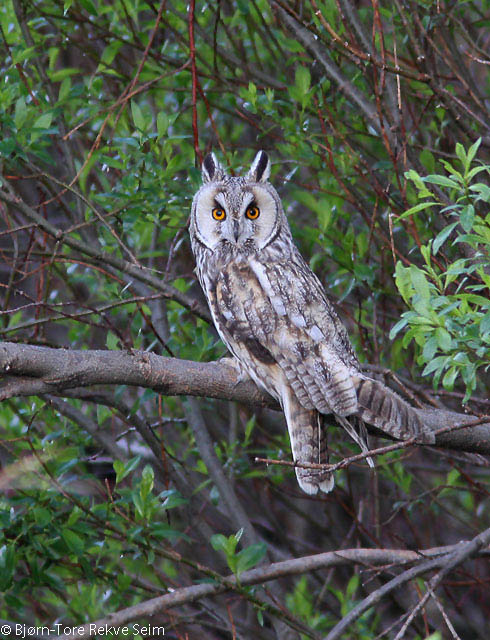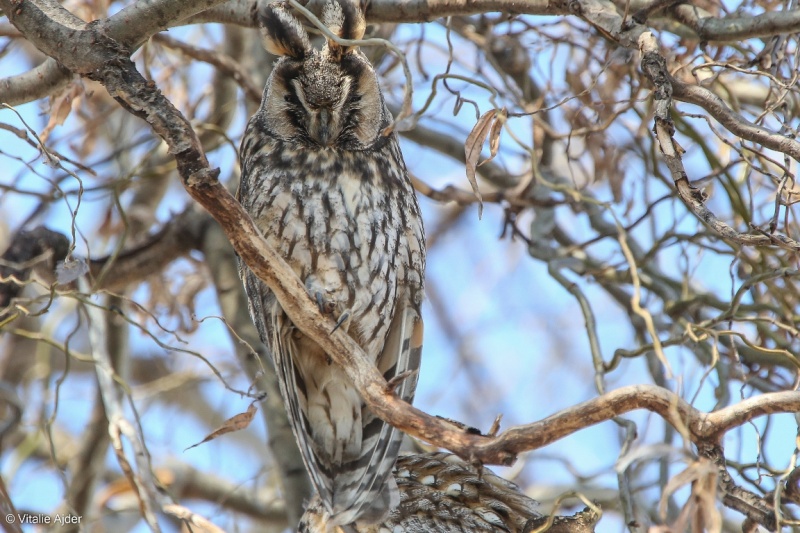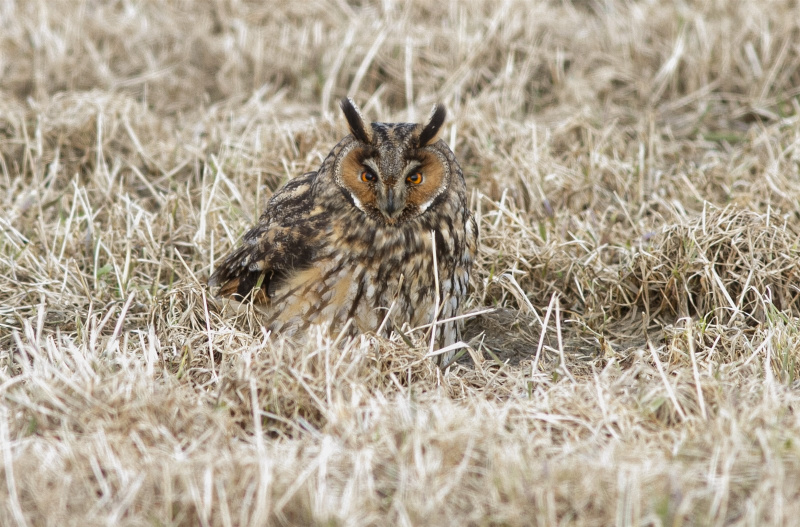White-winged Tern (Chlidonias leucopterus)
Long-eared Owl (Asio otus)
Breeding adult easily identified by white tail/rump combined with jet black under wing coverts and silvery upper wing. Immature with brownish back contrasting with pale, silvery upper wings and pale rump. Broad white collar, and lacks dark breast patch of immature Black Tern. Adult winter most liable to confusion with other terns, but upperparts much paler than Black Tern. Contrasting dark outer primaries and secondaries to rest of wing. Often retains some black under coverts even in winter which is diagnostic if seen. Slightly more compact than Black Tern and often recalls Little gull in shape. Bill noticeably shorter and thinner than in Whiskered Tern.
Sound:Mostly silent away from breeding ground. Most diagnostic call a dry, rolling "krrrrrr-ta-ta" where the rolling is followed by one or two accentuated syllables, or just simply "krrrrrr". Used in excitement.
Call:
Distribution:
Xeno-canto: map
Ecology:Birdlife ecology
Links:
Observation.org Latest observations
Image search Flickr NB! May give other species
CCCC-sound:Marco Dragonetti, Licence,Link.
A medium sized, brown and long-winged owl, with long ear-tufts and deep orange eyes. Only half the size of Eagle Owl. Differs from the more similar Short-eared Owl by darker (orange) eyes, longer ear-tufts and heavily streaked lower belly. In flight, note paler wing-tips (only finely barred, not tipped black).
Sound:Song a series of very deep, monotonous "hooooo"s, quite widely spaced. Uttered about once every 2-3 seconds. Sometimes rises in pitch, but with each "hoo" being constant. Rich repertoire of calls. Other sounds include; a nasal "eeeeeaaa" reminiscent of Collared Dove, nasal mewing and bill clicking.
Song, call:
Distribution:
Wikipedia: map (se also Xeno-canto below)
Ecology:Birdlife ecology
Links:
Observation.org Latest observations
Image search Flickr NB! May give other species
CC
 English
English Albanian
Albanian
 Armenian
Armenian
 Bulgarian
Bulgarian
 Catalan
Catalan
 Croatian
Croatian
 Czech
Czech
 Danish
Danish
 Dutch
Dutch
 Finnish
Finnish
 French
French
 Georgian
Georgian
 German
German
 Greek
Greek
 Hungarian
Hungarian
 Italian
Italian
 Latvian
Latvian
 Lithuanian
Lithuanian
 Macedonian
Macedonian
 Norwegian
Norwegian
 Polish
Polish
 Portuguese
Portuguese
 Romanian
Romanian
 Russian
Russian
 Sami : Lule sami
Sami : Lule sami
 Sami : North sami
Sami : North sami
 Sami : South sami
Sami : South sami
 Scientific names
Scientific names
 Serbian
Serbian
 Spanish
Spanish
 Swedish
Swedish
 Ukrainian
Ukrainian


